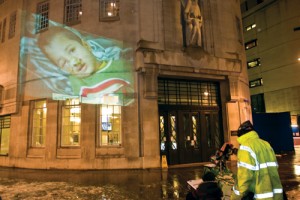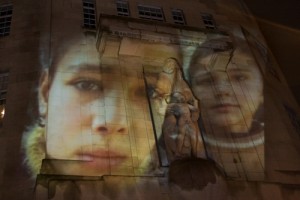Ben Goldacre found time for a chat with Journalism.co.uk today in regards to LBC radio legal team’s request that Goldacre remove audio from a radio show concerning MMR vaccinations. Three days ago, Goldacre – Guardian columnist, BadScience.net blogger, Bad Science author, doctor etc. – had posted the extract of a radio broadcast by LBC’s Jeni Barnett on his blog – a piece Goldacre believes ‘exemplifies every single canard ever uttered by the anti vaccination movement.’ He has now removed the offending audio after Global Radio lawyers contacted him to say it was an infringement of copyright. However, bloggers have been quick to upload the audio elsewhere.
Later on, we’ll post back here with a podcast. In the meantime, some of the things Ben Goldacre said during the interview (of which the forthcoming audio is an edited selection – hope to upload by end of afternoon, or Monday if not): Journalism.co.uk has now recorded some new audio, updated since the weekend: listen here at this link.
- “It genuinely never occurred to me – for even half a second – that what I was posting was any kind of infringement of any kind of law at all.”
- “To me I heard a very, very irresponsible piece of broadcasting, but more importantly a very instructive piece of broadcasting (…) particularly in the case of MMR – the media’s irresponsible and misleading reporting has led to quite serious public health outcomes.”
Goldacre said it was important to have the piece available for public access, and that replication was commonplace on the web; people often use his own blog posts and ideas, for example, he said. ‘Journalists often routinely steal my ideas,’ he said. “I want people to have my ideas. I want my ideas to get around.”
- “I suspect they [LBC] are intellectual property absolutists. I want to give them the benefit of the doubt because the alternative is that they wanted to silence discussion”.
- “This has had massively paradoxical effects (…) “It’s gone from being a little one-off blog post that I wouldn’t even write about in the column to this enormous cause-celebre.”
- He just wanted to use this as an example to highlight his concerns with the representation of the MMR debate in the media: “To catch one of these slippery animals from the stream as they all fly past, to hook it out and hold it up … to have a look at it – is massively informative and instructive …”
“This episode today, this ‘debate’ if you want to frame it in mawkish terms, is not about the dangers of MMR, it is about the dangers of the media,” Goldacre added.
Global Radio, LBC 97.3 owner, has confirmed that they have been in contact with Goldacre. The official statement says: “LBC 97.3 invites debate and encourages people to share their views as part of London’s Biggest Conversation – which is what Jeni Barnett’s discussion about the MMR injection did. We can confirm that the Global Radio legal team have been in contact with the writer of this blog, as he did not have the necessary permission to post the LBC 97.3 audio on the website.”

